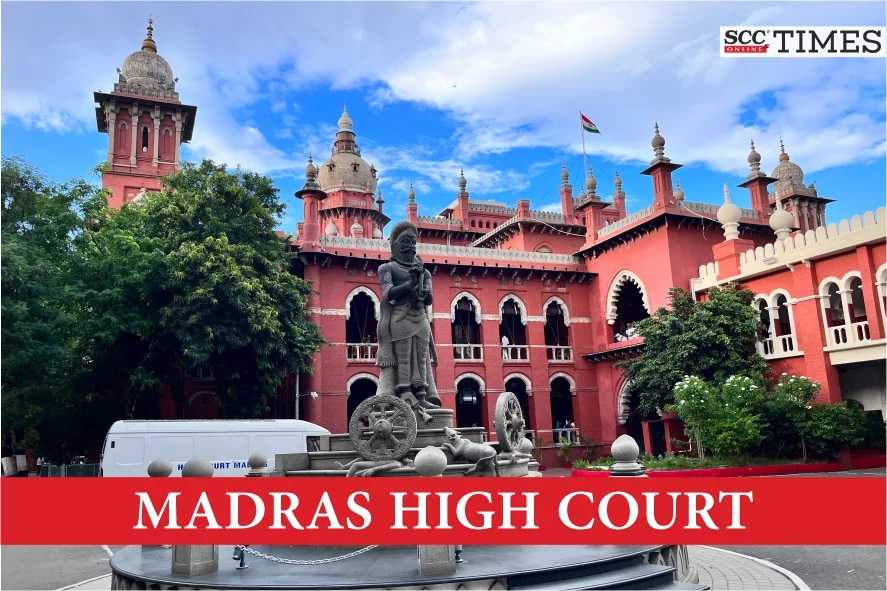Madras High Court: In a petition filed by the petitioners, who are facing a charge under Section 171(E) of the Penal Code, 1860 (‘IPC’), for allegedly bribing the voters during the election conducted in the year 2011, praying to quash the proceedings pending against them on the ground that the final reports are filed beyond the period of limitation, B. Pugalendhi, J. directed the Government Advocate to get instructions as to the (i) number of cases registered in the previous Parliamentary Election, 2019 and State Assembly Election, 2021 for the distribution of money / bribery to the voters; (ii) the stage of those cases; and (iii) details of the cases, if any, ended in conviction.
Further, it requested the State Election Commission, Tamil Nadu, to explain as to how they are following up with the cases that are being registered for electoral offences. The Election Commission was also directed to offer its suggestions, if any, for effective prevention of gratification to the voters.
The Court noted that cases have been registered on the allegation that the petitioners had distributed money to the voters during the election conducted in the year 2011. After ten years, the final reports were filed, and the Judicial Magistrates have also taken cognizance of the same. Now, the petitioners have approached this Court that the final reports have been filed and cognizance have been taken beyond the period of limitation and therefore, they sought for quashing the proceedings under Section 468 of the Code of Criminal Procedure, 1973, (‘CrPC’).
The petitioners have raised a plea that for the offence under Sections 171(E) and 188 IPC, a private complaint has to be filed before the Judicial Magistrate as per the provisions under Section 195(1A)(1) CrPC, which is not done in the present cases and therefore, they sought for quashing the proceedings.
The Court said that of late, gratifications are being made to the electors in the form of money, food, prizes, etc. Such gratifications would demolish the very basic structure of the constitution and democracy. As per the Court, the legislature has not treated this offence proportionate to its gravity and has treated it as an offence punishable for an imprisonment to an extent of one year. Resultantly, the practice of distributing money / gift to the voters have not been reduced and the cases reported for distribution of money during elections are raising in every election.
The Court mentioned a latest news concerning parliamentary elections, wherein it mentioned that for ensuing parliamentary elections, Rs.4,650/- Crore have been seized so far. It further remarked that its hardly 15 days have passed, and 65 more days is there for this election season. The amount so far recovered for these 15 days period is higher than the amount which have been recovered during the entire election conducted in the year 2019.
The Court further said that squads are being constituted by the Election Commission for monitoring the movement of money, and cases are also being registered for bribery. However, it added that since the penal actions contemplated for this offence is not effective, the cases are registered for some statistical purpose and the investigation agencies are not prosecuting the cases any further. The present cases on hand are a clear example, as the cases registered in the year 2011 for distribution of money, final reports are filed after ten years, enabling the parties to get the proceedings quashed on the grounds available under the Code.
Thus, the Court directed the Government Advocate to get instructions as to the (i) number of cases registered in the previous Parliamentary Election, 2019 and State Assembly Election, 2021 for the distribution of money / bribery to the voters; (ii) the stage of those cases; and (iii) details of the cases, if any, ended in conviction.
[Dhanalakshmi v. Sub Inspector of Police, 2024 SCC OnLine Mad 734, Order dated 16-04-2024]









